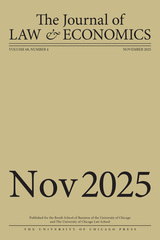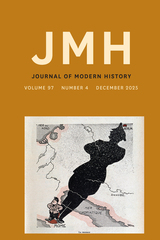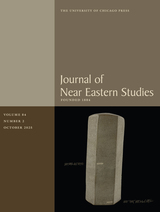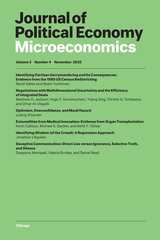
Catholic political identity and engagement defy categorization. The complexities of political realities and the human nature of such institutions as church and government often produce a more fractured reality than the pure unity depicted in doctrine. Yet, in 2003 under the leadership of then-prefect Joseph Cardinal Ratzinger (now Pope Benedict XVI), the Congregation for the Doctrine of the Faith issued a "Doctrinal Note on Some Questions Regarding the Participation of Catholics in Political Life." The note explicitly asserts, "The Christian faith is an integral unity, and thus it is incoherent to isolate some particular element to the detriment of the whole of Catholic doctrine. A political commitment to a single isolated aspect of the Church's social doctrine does not exhaust one's responsibility toward the common good." Catholics and Politics takes up the political and theological significance of this "integral unity," the universal scope of Catholic concern that can make for strange political bedfellows, confound predictable voting patterns, and leave the church poised to critique narrowly partisan agendas across the spectrum.
Catholics and Politics depicts the ambivalent character of Catholics' mainstream "arrival" in the U.S. over the past forty years, integrating social scientific, historical and moral accounts of persistent tensions between faith and power. Divided into four parts—Catholic Leaders in U.S. Politics; The Catholic Public; Catholics and the Federal Government; and International Policy and the Vatican—it describes the implications of Catholic universalism for voting patterns, international policymaking, and partisan alliances. The book reveals complex intersections of Catholicism and politics and the new opportunities for influence and risks of cooptation of political power produced by these shifts. Contributors include political scientists, ethicists, and theologians. The book will be of interest to scholars in political science, religious studies, and Christian ethics and all lay Catholics interested in gaining a deeper understanding of the tensions that can exist between church doctrine and partisan politics.

From the first rumblings of the Moral Majority over twenty years ago, the Christian Right has been marshalling its forces and maneuvering its troops in an effort to re-shape the landscape of American politics. It has fascinated social scientists and journalists as the first right-wing social movement in postwar America to achieve significant political and popular support, and it has repeatedly defied those who would step up to write its obituary. In 2000, while many touted the demise of the Christian Coalition, the broader undercurrents of the movement were instrumental in helping George W. Bush win the GOP nomination and the White House. Bush repaid that swell of support by choosing Senator John Ashcroft, once the movement's favored presidential candidate, as attorney general.
The Christian Right in American Politics, under the direction of three of the nation's leading scholars in the field of religion and politics, recognizing the movement as a force still to be reckoned with, undertakes the important task of making an historical analysis of the Christian Right in state politics during its heyday, 1980 to the millennium. Its twelve chapters, written by outstanding scholars, review the impact and influence of the Christian Right in those states where it has had its most significant presence: South Carolina, Virginia, Texas, Florida, Michigan, Iowa, Kansas, Minnesota, Colorado, California, Maine, and Oregon and Washington.
Since 1980, scholars have learned a good deal about the social characteristics, religious doctrine, and political beliefs of activists in and supporters of the Christian Right in these states, and each contribution is based on rigorous, dispassionate scholarship. The writers explore the gains and losses of the movement as it attempts to re-shape political landscapes. More precisely, they provide in-depth descriptions of the resources, organizations, and the group ecologies in which the Christian Right operates-the distinct elements that drove the movement forward.
As the editors state, "the Christian Right has been engaged in a long and torturous 'march toward the millennium,' from outsider status into the thick of American politics." Those formative years, 1980-2000, are essential for any understanding of this uniquely American social movement. This rigorous analysis over many states and many elections provides the clearest picture yet of the goals, tactics, and hopes of the Christian Right in America.

The Clinton scandal consumed the better part of a year of American public life, bitterly dividing the nation and culminating in a constitutional crisis. In this book, thoughtful, nonpartisan essays provide an insightful and lasting analysis of one of the major political events of our time.
Here leading scholars explore the long-reaching constitutional and political implications of the scandal: how it will affect the presidency, the law, and the political process. A first group of chapters considers effects of the scandal on institutions: the presidency, Congress, the courts, the independent counsel statute, executive privilege, and the impeachment process itself. A second section addresses political factors: public opinion, the media, and presidential character and personality. A concluding essay broadly examines the implications of the scandal for governance.
These far-reaching essays address such issues as risks posed to Congressional political careers, the prospect of future presidents being subject to civil suits, the pros and cons of Kenneth Starr's investigation, the role of the media in breaking and then shaping the story, and ways of reforming the system to handle the unacceptable private behavior of future presidents.
A provocative book for readers concerned with how our government copes with such a challenge, and an essential reader for courses on the presidency or American government, this collection will stand the tests of both time and rigorous analysis.

In the wake of the Clinton-Lewinsky scandal, the Christian Right expected major victories in the 1998 elections. Instead, many of its allies lost close contests, and the movement was seen as a liability in some high-profile campaigns. In the only in-depth study of the Christian Right's role in these races, leading scholars analyze the role of the movement in fourteen key states, from Maine to California, and address speculations that the movement is fading from the American political scene.
The book focuses on elections on the state and local levels, where the Christian Right is most influential, and it describes the movement's niche in some detail. Although each campaign described in the book had its unique characteristics, the editors have drawn some broad conclusions about the 1998 elections. While the movement was weak in the areas of candidate recruitment and fundraising, they say, the outcome may have also been related to external factors including a broader turnout of typically Democratic constituencies and the country's boredom with the scandal that conservatives had made the centerpiece of their campaign. Despite the setbacks of 1998, the contributors argue, the Christian Right continues to have an enormous influence on the political dialogue of the country.
Written from an unbiased, nonpartisan perspective, this volume sheds light on a topic that is too frequently mired in controversy.
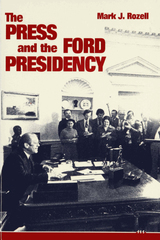

The Christian Right never ceases to surprise professional observers of American politics.
With the Christian coalition in disarray, many expected that the movement would play less of a role in the 2004 elections. But when exit polls reported that "moral values" were the most commonly cited reason for presidential vote choice, pundits immediately proclaimed the importance of the "values vote." Yet the role of the Christian Right, of statewide referenda on same-sex marriage, and of religious mobilization remained the subject of debate.
The Values Campaign? The Christian Right and the 2004 Elections reaches well beyond the instant analyses of the post-election period to provide an assessment of the role of the religious right in 2004. The contributors to this volume are among the leading scholars of religion and politics in the United States, and many have contributed for over a decade to ongoing discussions of the role played by the religious right in national elections.
The authors consider national mobilization and issues, and also explore the role of the Christian Right in specific states. Their evaluations contend that the "values campaign" was not an aberration but a consistent pattern of national politics, and that moral traditionalism will likely continue to be a significant factor in future elections.
A timely study of the 2004 elections, this volume will appeal to scholars and observers of electoral politics, state politics, and religion and politics.
READERS
Browse our collection.
PUBLISHERS
See BiblioVault's publisher services.
STUDENT SERVICES
Files for college accessibility offices.
UChicago Accessibility Resources
home | accessibility | search | about | contact us
BiblioVault ® 2001 - 2025
The University of Chicago Press


